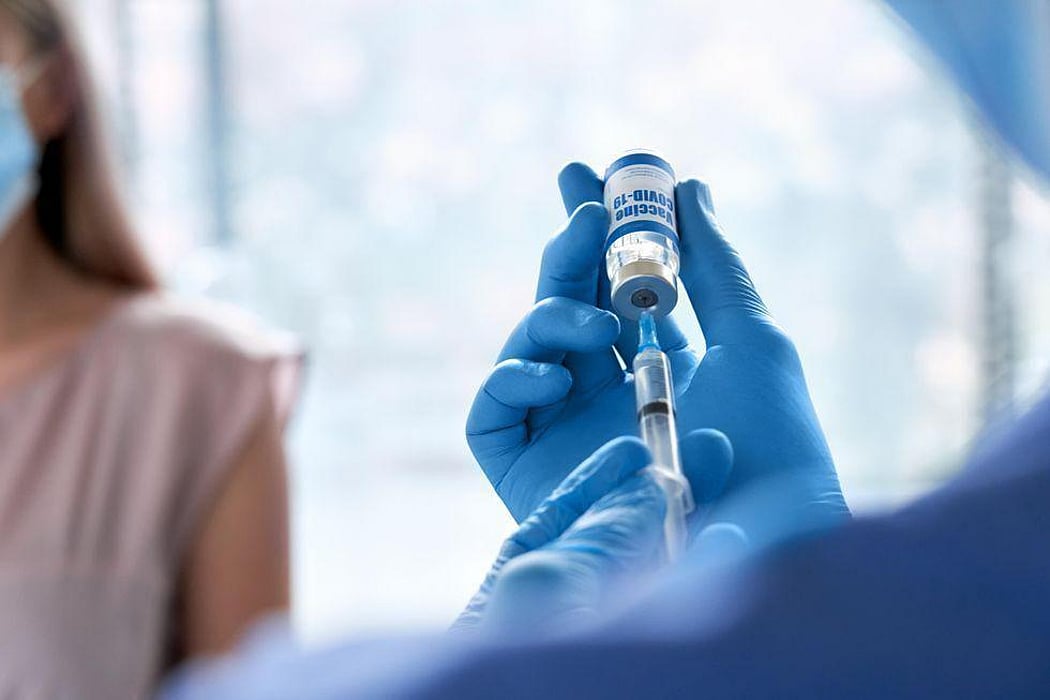CDC Panel Advises That Other Vaccines Are Preferred Over J&J Shot

THURSDAY, Dec. 16, 2021 (HealthDay News) -- Following continued reports of a rare but life-threatening clotting condition linked to the Johnson & Johnson COVID-19 vaccine, a federal advisory panel on Thursday recommended that the Pfizer and Moderna shots be the preferred choices for Americans.
The Advisory Committee on Immunization Practices voted unanimously on Thursday afternoon on "updated recommendations for use" of the single-dose vaccine. The expert panel heard updated information about thrombosis and thrombocytopenia syndrome (TTS), the rare blood clotting condition that has been linked to the J&J vaccine, but not to the Pfizer or Moderna vaccines.
So far, about 16 million people have been fully vaccinated with the J&J vaccine in the United States, compared with about 73 million with Moderna and more than 113 million with Pfizer. Right now, the J&J vaccine is authorized for use in people 18 years and older, and can be used as a booster shot for adults fully vaccinated with the J&J, Pfizer, or Moderna vaccines.
According to The New York Times, evidence has emerged suggesting that the risk from the J&J vaccine of developing TTS, although still exceedingly rare, was larger than originally thought. The U.S. Centers for Disease Control and Prevention reviewed data showing that a total of 54 cases had been reported in people who had received the shot by the end of August. That works out to 3.8 cases per 1 million people -- still very low, but higher than was originally estimated.
One of the advisory panel members, Pablo Sanchez, M.D., a pediatrician at Ohio State University, said he was already telling patients to get other vaccines. "I'm not recommending [the J&J vaccine] to any of my patients' parents and I tell them to stay away from it," he told The Times.
On Tuesday, the U.S. Food and Drug Administration weighed in on the vaccine and said people with a history of TTS should not get the J&J vaccine. "You should not get the Janssen COVID-19 Vaccine if you had a severe allergic reaction after a previous dose of this vaccine; had a severe allergic reaction to any ingredient of this vaccine; had a blood clot along with a low level of platelets following Janssen COVID-19 Vaccine or following AstraZeneca's COVID-19 vaccine [not authorized or approved in the United States]," the agency said in an updated fact sheet for vaccine recipients and caregivers.
Both the CDC and the FDA have said people who receive the J&J vaccine -- particularly women younger than 50 years -- should watch for symptoms a week or two after a shot that include severe or persistent headaches or blurred vision; shortness of breath; chest pain; leg swelling; persistent abdominal pain; or easy bruising or tiny blood spots under the skin beyond the injection site. If any of those symptoms develop, people should seek medical care immediately.
Related Posts
Clutter in the Attic: Why Memory Falters With Age
FRIDAY, Feb. 11, 2022 (HealthDay News) -- Imagine a closet filled with treasures...
Big Drop Seen in Drug Treatment Admissions During Pandemic
MONDAY, Sept. 26, 2022 (HealthDay News) – Admissions to drug treatment programs...
Most Older Adults With COPD Are Doing Well Mentally
FRIDAY, Dec. 16, 2022 (HealthDay News) -- The majority of older adults with...
Medical Groups Issue Consensus Definition of Brain Death
THURSDAY, Oct. 12, 2023 (HealthDay News) -- A new guideline from four leading...
